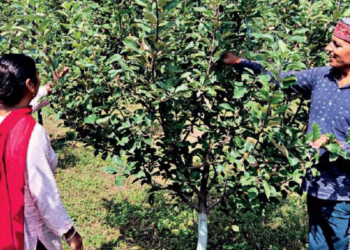- 3 Agriculture bills given clearance by the President
- People begin protests in various states of India
- Farmers majorly apprehensive towards “MSP”
TAD NewsDesk, New Delhi: The President of India, Dr. Ram Nath Kovind, recently acceded to the three newly cleared bills by the Parliament on Monday. While the farmers of Maharashtra and parts of Uttar Pradesh welcomingly celebrated the legislated bills, other states’ farmers’ mourning intensified. Amidst the apparent disagreement manifested by several Indian farmers against the latest agricultural legislation, the Indian President’s accent added to their misery.
The Three Bills-
- Farmer’s Produce Trade and Commerce (Promotion and Facilitation) Bill
- Farmer’s (Empowerment and Protection) Agreement on Price and Farm Services Bill
- Essential Commodities (Amendment) Bill
Despite severe resentment by the opposition, the two parliamentary houses cleared the legislation while bidding farewell to this year’s monsoon session.
In corresponding big news, Shiromani Akali Dal (SAD), NDA’s oldest ally, quit the National Democratic Alliance (NDA) on Sunday, to express the withdrawal of consent towards the controversial farm bills.
Indian farmers have also left no stone unturned to display their resentment to the introduced bills. In their words, they are apprehensive about the Minimum Support Price (MSP) regime of the bill. This regime could steeply reduce their earnings on the yield. Further, they also expressed their distress about the agri-businesses and big retailers’ upper hand in negotiations.
The scenario has taken grave turns. The agitations took the form of a “Bharat Bandh,” on the 25th of September, which was aggressively observed across the Indian States.
Meanwhile, numerous farmers of Haryana blocked several roads of the Haryana State.
The agitations put Rail movement to a halt due to the “rail roko” agitation executed by the farmers in Punjab on Saturday. The execution continued for three days. Kisan Mazdoor Sangharsh Committee launched the “rail roko” agitation, compelling 20 odd trains to be partially cancelled. Further, five short trains were terminated till 26th September by the Indian Railways.
Why are Indian Farmers Apprehensive of the latest Farmer bills?
The dread of the big corporate houses taking over their yield profits has captured the Indian Farmers’ hearts. As rational as it is, apprehensions have been fervently raised by the protesters against the “minimum support price” regime. The opposition parties have heavily supported the protests. Many opposition parties have even gone to the extent of labeling the bills “anti-farmers.”
Concerns of the Farmers-
- Fear of yield price reduction under the “minimum support price” regime in the legislation
- Consequent growing insignificance of state-controlled APMCs
- Losing out land rights under contract farming rule
- Reduction in farm product prices due to the dominance of big agri-businesses over the market
- The exploitation of farmers by big contractors through contract farming provisions
The introduced reforms included in the latest legislation are likely to affect the influential “commission agents” (commonly known as ‘Arhatiyas’ in regions of Punjab and Haryana) in “mandis.” The plausible intention of these Arhatiyas is to not loosen grip over farmers.
Ashok Prasad, CEO & co-founder, Unnati, said, “This is a revolutionary step taken by the government in transforming the agriculture sector and enabling farmers to become more competitive and turn the industry into a lucrative one. As a player in the ecosystem, it is clear that the intent of the bill is headed in the right direction and will certainly have a positive impact on farmers across the country. Particularly for small farmers, the bill will benefit them since they will not be able to sell their produce directly to processors and be presented with a plethora of choices that were absent earlier. It will place the power in the farmers’ hands to decide where, how, and what to produce. Prominent stakeholders such as agri-tech platforms will also play a pivotal role in creating online mediums to facilitate the output aggregation. Furthermore, they can also provide real-time access to farmers. The bills will undoubtedly offer a huge scope of new players to emerge in the market.”
The bill’s autonomy rests in the Central government’s hands, which stands unopposed by any authorities. Public welfare national organizations like Krishak Bharati Cooperative Ltd and the National Seeds Corporation are likely to lose their significance due to the private establishments for providing seeds and fertilizers at pre-defined costs. Further, no legal aids or committees have been designated the provision to investigate conflicts in case of an “extraordinary price hike” related to essential commodities.
The bill’s ambiguity turns the clouds grey. There is no trace of clarity in the context of a natural calamity like drought or floods, which are rampant in the country. However, what remains etched on the bill’s pages is that the Private sponsors’ demand for the quality of products is bound to be served by the fellow farmer.
The deeper we dwell into the translations of the bill, the more loopholes we encounter. Amidst the precarious meanders within the bill that open doors to grave inequalities, injustices, and exploitation, and farmers’ ‘progress’ seems meagre. Swaddled voices, suicides, and suffering represent the current scenario of the Indian Farmers.
We only stand to see if the dawn will arise, or will the sky grow more caliginous?










